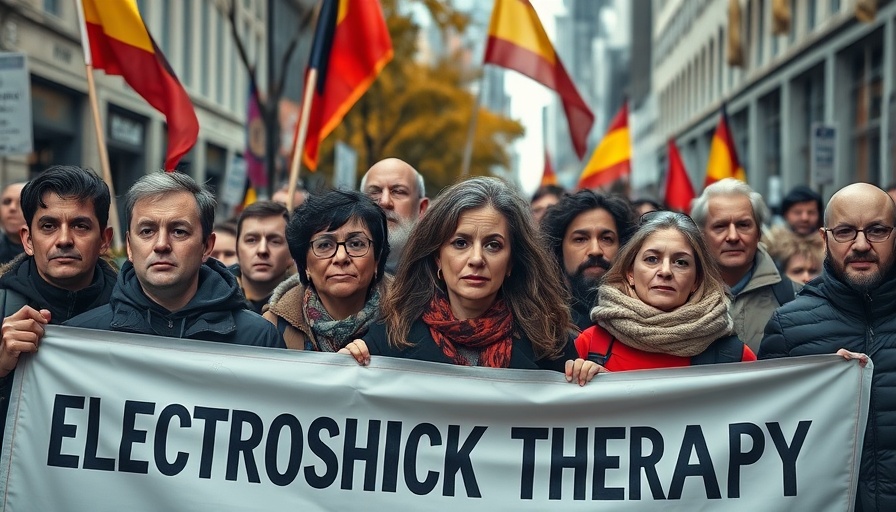
A Call for Change: The Movement Against Electroshock Therapy in Europe
In a bold demonstration of advocacy, the Citizens Commission on Human Rights (CCHR) has taken a firm stand to eliminate electroshock therapy across Europe. This call to action unfolded during the 33rd European Congress of Psychiatry held in Madrid, where demonstrators congregated passionately to demand an end to coercive psychiatric practices that undermine human dignity.
The Protest: Voices United Against Coercion
The protest saw hundreds from various European nations marching through Madrid’s Salamanca District to voice their concerns. Among the issues highlighted were the alarming practices of involuntary commitments, forced medication, and the controversial use of electroshock therapy. Many protesters argued that these methods are not only degrading and dehumanizing but contradict modern healthcare principles. They contend that these practices deliver profound trauma and harm to individuals, raising urgent questions about the ethics of psychiatric treatment in Europe.
Human Rights at the Forefront of Mental Health
The CCHR underscored its messaging by quoting prominent United Nations bodies, including the Committee on the Rights of Persons with Disabilities. Their clarification that involuntary psychiatric interventions may constitute torture has been a crucial talking point for advocates. According to critics, the very fabric of modern society is being tested as these outdated practices continue to exist in mental health systems, violating basic human rights.
Concerns Over Mental Health Treatment in Spain
During the protest, the CCHR also called attention to Spain’s excessive prescription rates of psychiatric drugs, where the nation ranks among the highest consumers of tranquilizers. This alarming trend correlates with troubling increases in suicide rates, prompting the question: Are current treatments doing more harm than good? A spokesperson pointed to studies, such as one from University College London, which challenge the traditional “chemical imbalance” theory associated with depression, inviting deeper reflection on the efficacy and ethics of existing treatments.
Reassessing the Role of Pharmaceutical Companies
The influence of the pharmaceutical industry in psychiatry has drawn fierce criticism from CCHR advocates who drew attention to potential conflicts of interest. They fear that some leading psychiatrists at the Congress have financial ties to pharmaceutical companies, which could distort their scientific objectivity. This concern is particularly relevant in light of discussions around the possible return of asylums and assisted suicide, which represent concerning trends that could derail progress in psychiatric care.
Global Implications and Future Insights
As we comprehend the complexities of mental health, the call for reform is not just local but resonates globally. The CCHR is advocating for reforms grounded in human rights and scientific rigor, and this approach has garnered support from various corners of society. With over 100 independent CCHR offices advocating for protection against psychiatric abuse, the movement signifies a growing demand for mental health systems that embrace dignity and autonomy rather than coercion and obsolete practices.
Encouragement for Advocacy and Community Involvement
The recent protests showcase the power of united action in addressing mental health issues. It’s essential for those concerned about human rights, mental health, and societal welfare to get involved. Awareness campaigns, community outreach programs, and engagements in interfaith activities can amplify the movement's message and create a collective voice that cannot be ignored.
The Path Forward: Reform for Mental Health Systems
The CCHR’s demands reflect a broader hope for a mental health system that respects human dignity and prioritizes personal autonomy. Moving forward, it is vital to continue advocating for reform in mental health paradigms and to press for policies that align with ethical standards in healthcare. The involvement of various sectors, including celebrities and activists, can add invaluable support to the cause, fostering community engagement and hope.
In a world seeking understanding and healing, the journey of the CCHR and its supporters marks an essential step toward a future where mental health treatment aligns with fundamental human rights. Every individual has a role to play in this dialogue, bringing awareness and compassion to these critical issues.
 Add Row
Add Row  Add
Add 




 Add Row
Add Row  Add
Add
Write A Comment